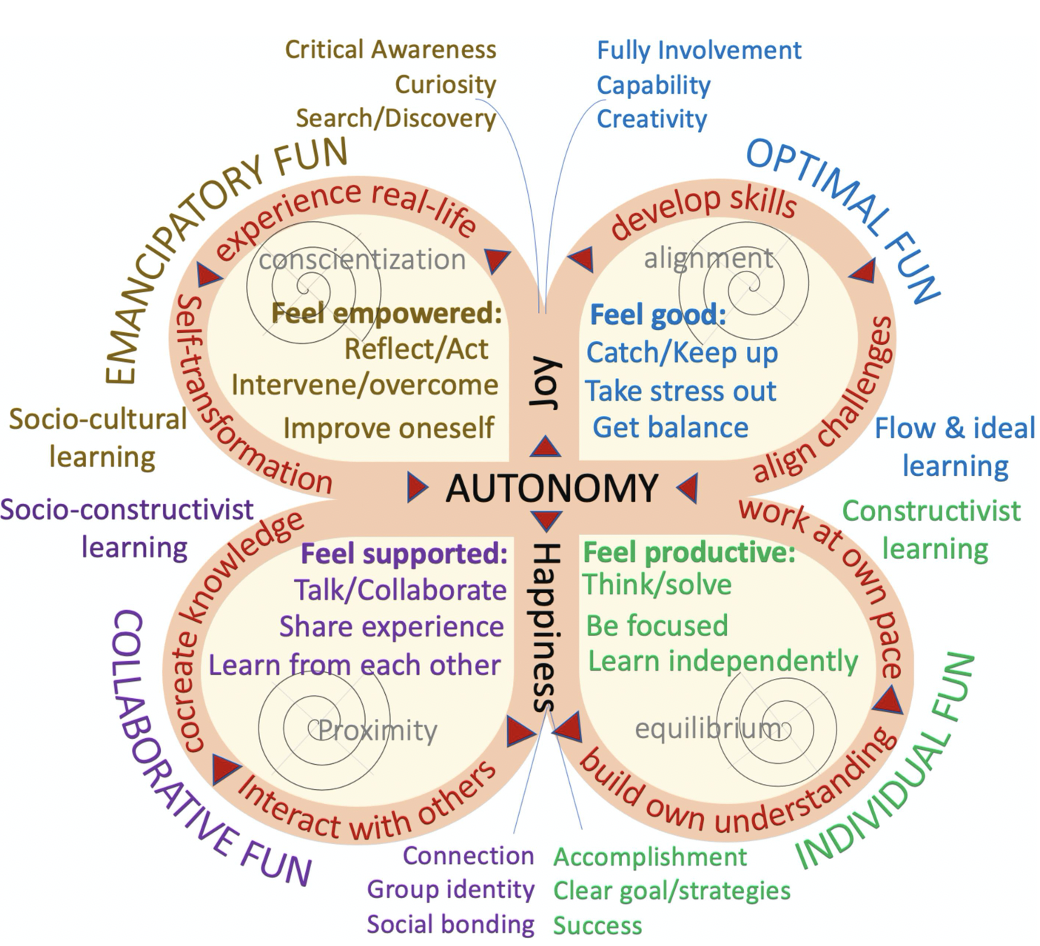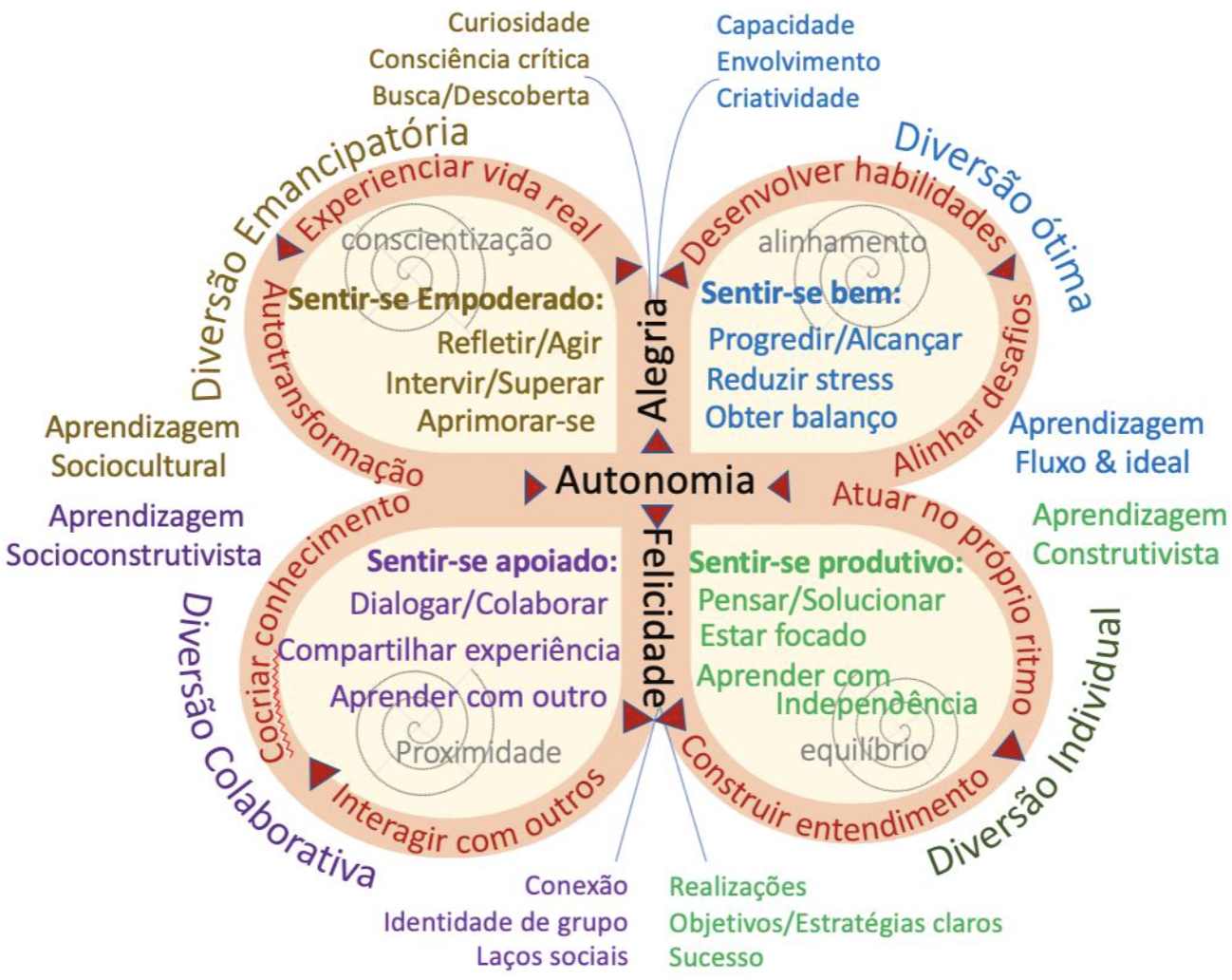a study supported by responsible research and innovation and open data
http://oro.open.ac.uk/71012/
Okada, Alexandra and Sheehy, Kieron (2020). The value of fun in online learning: a study supported by responsible research and innovation and open data. Revista e-Curriculum, 18(2) pp. 319–343.
DOI: https://doi.org/10.23925/1809-3876.2020v18i2p590-613
Okada, Alexandra and Sheehy, Kieron (2020). The value of fun in online learning: a study supported by responsible research and innovation and open data. Revista e-Curriculum, 18(2) pp. 319–343.
DOI: https://doi.org/10.23925/1809-3876.2020v18i2p590-613
Abstract
Humanistic learner-centred curriculum approaches that use new technologies are vital as a response to a world dominated by grand challenges such as the COVID-19. This article examines the value of fun in distance education to promote student success and retention. Although the experience of fun is part of human nature, research in this area is sparse. This mixed-methods study, informed by Responsible Research and Innovation (RRI) and open data, focused on 206 students including teachers, consultants and education professionals. The results indicated that 91% of participants valued fun in online learning; highlighting well-being, motivation and performance. However, 17% believed that fun within learning could take the focus off their studies and result in distraction or loss of time. This article introduces the new concept of emancipatory fun and offers some educational recommendations

Portuguese Abstract – Abordagens curriculares mais humanistas centradas no aprendiz com tecnologias são vitais como uma resposta para o mundo dominado por grandes desafios, tais como a COVID-19. Este artigo examina o valor da diversão na Educação a Distância visando promover o sucesso dos estudantes e reduzir a evasão. Embora a experiência da diversão seja parte da natureza humana, pesquisas nessa área são escassas. Este estudo de métodos mistos apoiado pela Pesquisa e Inovação Responsáveis (RRI) e dados abertos focou 206 estudantes, incluindo professores, consultores e profissionais da educação. Os resultados indicaram que 91% dos participantes valorizaram a aprendizagem on-line divertida, destacando bem-estar, motivação e desempenho. Entretanto, 17% acreditaram que a diversão na aprendizagem poderia tirar o foco dos estudos, resultando em distração ou perda de tempo. Este artigo introduz o novo conceito de diversão emancipatória e oferece algumas recomendações



